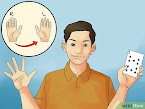On the literary vs the real life, and which is which?
Foreshadowing is a literary device where something happens early on in the plot that gives you a clue as to something that will happen later in the story. For instance, a character sees some seemingly insignificant prop early on, and it turns out to be significant to the story later. That’s an example of direct foreshadowing.
Physical or direct foreshadowing, the “smoking gun,” as it is known in the trade, is actually a narrative rule that states, “If the author draws attention to a smoking gun in chapter one, it needs to be relevant in chapter 33.”
Otherwise, it’s an unnecessary detail that serves as nothing but a distraction. And that comes across as an obvious attempt at sleight of hand by the author, and no reader is paying to be fooled, at least accidentally.
It's also known as "Chekhov's Gun," named for Russian writer Anton Chekhov, who said, "Remove everything that has no relevance to the story. If you say in the first chapter that there is a rifle hanging on the wall, in the second or third chapter it absolutely must go off. If it's not going to be fired, it shouldn't be hanging there." The "smoking gun" theory title works the best, in my opinion, as laypeople (people who aren't geeks about writing) hear "Chekov's Gun," and think its a phaser pistol being welded by Pavel Chekov from Star Trek.You can also have symbolic foreshadowing, where for instance a character has a series of dark foreboding dreams and then later something dark happens. Or perhaps a character has an item early on, like Chekhov's Gun, but the gun isn't used in a literal way, but rather symbolically. For instance, someone has something bad happen to them later, after seeing the gun. A lot of it is dependent on the author-- much like contextual or authorial symbolism, it only make sense in the context if the author tells you it makes sense, and how it makes sense. Almost in a "sympathetic magic" kind of way: it works because we believe it works. That doesn't necessarily make it everyone's reality, though.
Deja Vu, on the other hand, is a feeling that you've already experienced something, seen something, have "been there before," and I suppose it is the real-life equivalent to the narrative device that is foreshadowing.
Science tells us that deja vu is nothing more or less than a "neurodivergent slip from the norm," if you will, whereby the brain literally "forgets" for a brief period, literally three seconds, and then remembers, but of course with a three second memory gap. So you enter a room, your brain has a very small blank hiccup, and then it's done. No time seems to pass subjectively, although objectively three seconds have passed. It is enough that we recognize the room, and seem to remember "being here before," because we were there before-- three seconds before. Really not a surprise when you learn the the brain is constantly "filling in gaps," up to 90% of what we see is being filled in by our brain based on previous experiences, throughout our waking day. The vast majority of that "fill in" however is a seamless process, until it's not. 90%... what does that suggest about what we call "reality" when even our own brains play games with us?
I know, it's all like learning the secret of a magic trick-- some don't want to know-- and to them, with the knowledge comes the ruination of the trick.
And some must have Truth, at all costs. They are the ones who would go on to be resentful at being lied to at Christmastime, who tell themselves that they would have appreciated the gifts that appeared under their childhood Christmas trees regardless of whether they were delivered by Santa Claus or by Mom and Dad.
They are the ones who don't like surprises, and need their world ordered and organized. To them, magic is the perfect schedule, the fifteen minutes early to every appointment, the "everything has a place" organizer.
Which is the right approach? I would say the one that works for you is correct-- as usual in life, if it works, it's an asset, if it doesn't, it's not. Either way, enjoy the ride your brain is taking you on-- 90%.
© Ray Cattie






No comments:
Post a Comment